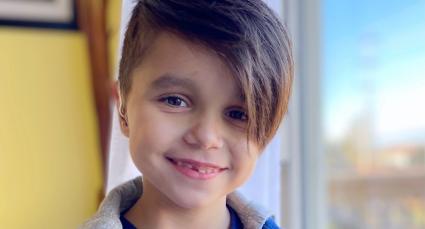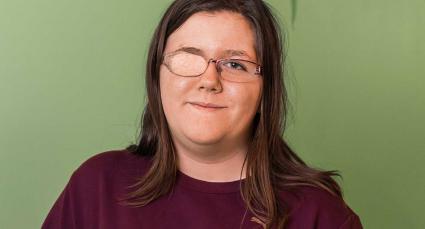In January 2020, when Ethan’s mom, Allison, noticed he was tired most of the time and falling asleep on the car ride home after school every day, she didn’t think much of it. The holiday season—a busy time for many—had just wrapped up, and everyone was feeling exhausted.
But shortly after returning to school, Allison was contacted by Ethan’s teacher to tell her that he seemed disoriented, and she was asked to come and see him. “When I saw Ethan, he told me he was fine and just wanted to go home and take a nap,” shares Allison.
Instead, Allison took him to the IWK to find out why he felt constantly tired and struggled to stay awake.
When Allison and Ethan arrived at the IWK’s emergency department, Allison explained to a nurse that her son was constantly feeling drained and had appeared disoriented with his teacher. “They took one look at him and immediately put him in a wheelchair and rushed him to a room with a bed,” says Allison.
Ethan was experiencing diabetic ketoacidosis (DKA), a serious complication of diabetes that can be life-threatening. DKA develops when your body doesn’t have enough insulin (a hormone) to allow blood sugar into your cells for use as energy. Sometimes DKA is the first sign of diabetes in people who haven’t yet been diagnosed, as was the case for Ethan.
Ethan was diagnosed with type 1 diabetes, a chronic health condition for which there is no cure. With this condition, the pancreas makes little or no insulin. Because Ethan was in DKA, his organs were at risk of failing.
Ethan was admitted to the IWK and given insulin through an IV to try and lower his blood sugar levels. He was given ice chips for three days because he wasn’t allowed to eat anything.
“We met with a social worker, dietitian and the endocrinologist many times,” explains Allison. “We also met with the nursing staff to learn how to give his injections and to make sure that we knew how to check his sugars—all the things that he needed to be able to live with diabetes.”
Ethan, now 12, must take two different types of insulin each day using a needle. The first type is a fast-acting insulin that he needs to take before he eats anything, whether it’s a snack or a meal. The second type is long-lasting and slowly disperses over 24 hours. “There are days he’ll just cry because he’s angry and frustrated and doesn’t want to deal with it anymore,” says Allison.
Although Ethan’s diagnosis has had its challenges for him and his family, they are grateful for the IWK. “I don’t know where we’d be without the IWK,” says Allison. “They are the best children’s hospital, and they’ve been just incredible.”
In 2021, after hearing a radio ad about fundraising for the IWK Foundation through its Warrior Program, Ethan told his mom that he could be a Warrior for the IWK. She agreed and immediately signed him up to raise funds for the IWK Radiothon.
Ethan collected bottles and cans and put the money refunds towards his fundraising goal, which he exceeded in 2021 and 2022. In fact, Ethan was the top fundraising Warrior for the IWK Radiothon for two consecutive years.
When asked why he enjoys being an IWK Warrior, Ethan says, “I like being able to set a new fundraising goal each time and beating it every single time. Giving back also makes me feel wholesome inside.”
In 2023, Ethan was selected to be the 2023 Warrior Ambassador for the IWK Radiothon.

Zaccari
Born with a rare and life-threatening kidney disease, Zaccari needed a kidney transplant to survive. In February 2018, his mom received the call that would save her…

Alyssa
After experiencing frequent headaches and blurry vision, Alyssa was diagnosed with a tumour on her brain stem that required a complex surgery.

